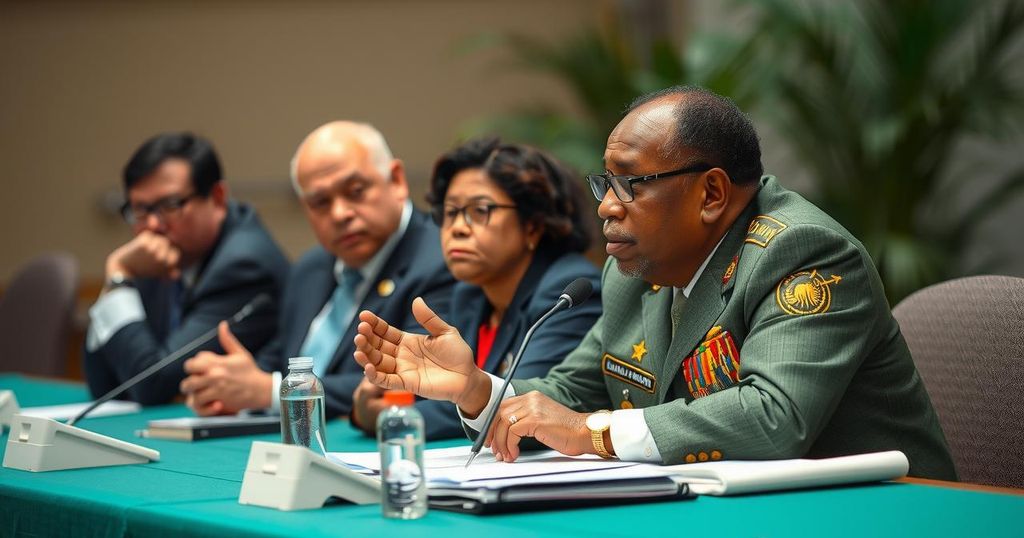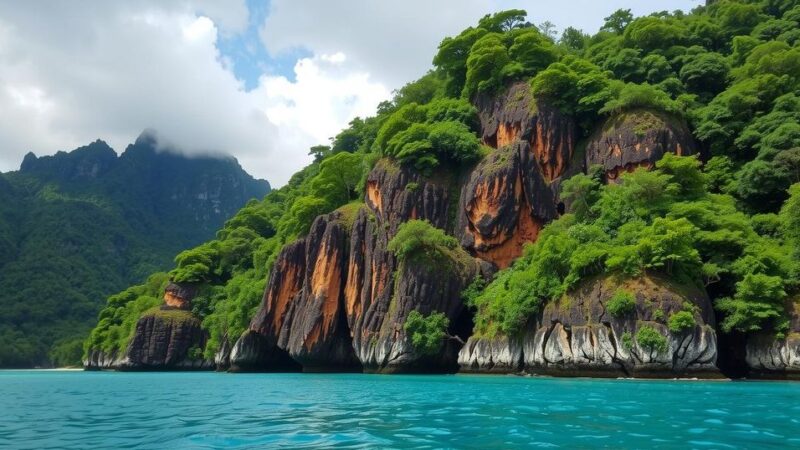Papua New Guinea’s Prime Minister James Marape has announced a commitment to attend future UN climate summits after boycotting recent discussions, emphasizing the need to prioritize forest conservation as critical in combating climate change and seeking accountability from nations with substantial carbon footprints.
The Prime Minister of Papua New Guinea, James Marape, has pledged to participate in upcoming UN climate summits following the nation’s boycott of the recent discussions held in Azerbaijan. He emphasized that the focus of climate negotiations should prioritize forest conservation, which he described as essential for tackling climate change and managing carbon footprints. Marape revealed that Papua New Guinea aims to contribute to the COP30 summit in Brazil and plans to support Australia’s bid to co-host COP31, conditional upon prioritizing forest management in the discussions.
Papua New Guinea’s absence from the November climate talks was attributed to dissatisfaction with the treatment of forest business owners by the host nation. Marape has asserted that effective climate action cannot occur without addressing forest management, calling the discussions without such focus “totally in vain.” The PM noted that forestry plays a critical role in reducing atmospheric carbon, referring to it as “close to our heart.” Papua New Guinea’s rich rainforests, lauded for their vital ecological role, position the nation as a significant player in global climate efforts.
Papua New Guinea is renowned for possessing the third-largest rainforest in the world, often referred to as one of the “lungs of the Earth.” The nation faces acute vulnerabilities to climate change effects, given its geographic isolation and propensity for natural disasters. Despite being among the most at-risk regions globally, the Pacific island nation’s leadership has criticized the current climate discussions for neglecting crucial environmental concerns, particularly forest preservation. The Prime Minister’s call for prioritizing forestry in climate negotiations underscores the critical intersection between environmental health and economic viability for the Pacific states.
In conclusion, the Prime Minister of Papua New Guinea has reaffirmed his commitment to participating in future UN climate talks, advocating for a greater emphasis on forest conservation as a solution to climate change. His insistence on the importance of forestry reflects a broader understanding of climate resilience and the need for meaningful commitments from industrialized nations. Moving forward, it is pivotal for discussions surrounding climate change to incorporate forest management strategies that align with the ecological needs of vulnerable nations like Papua New Guinea.
Original Source: www.france24.com






